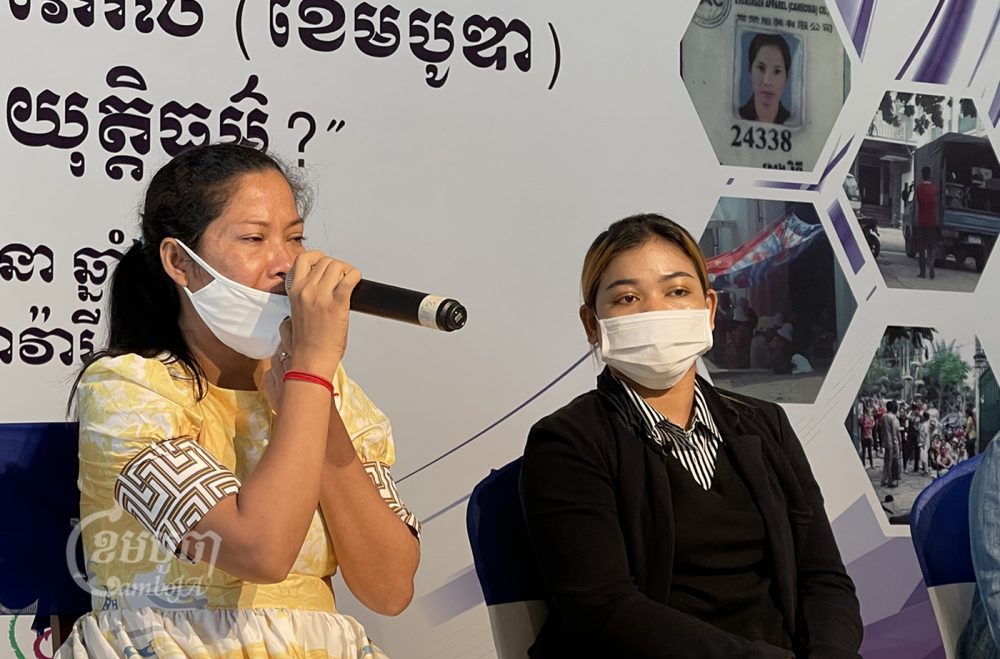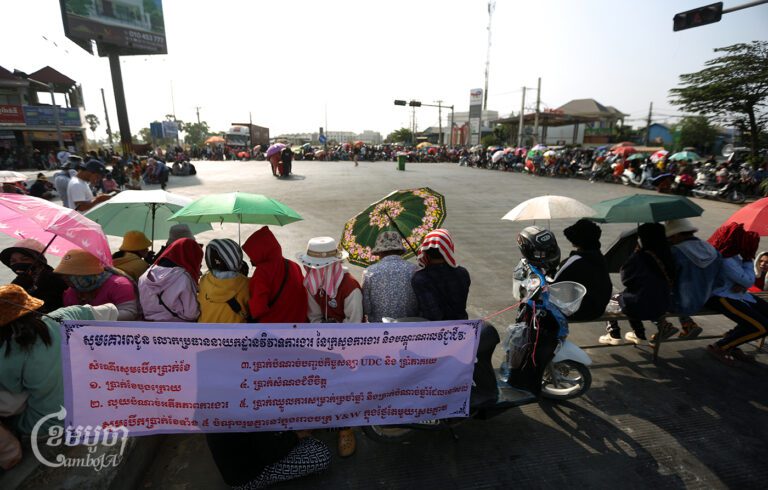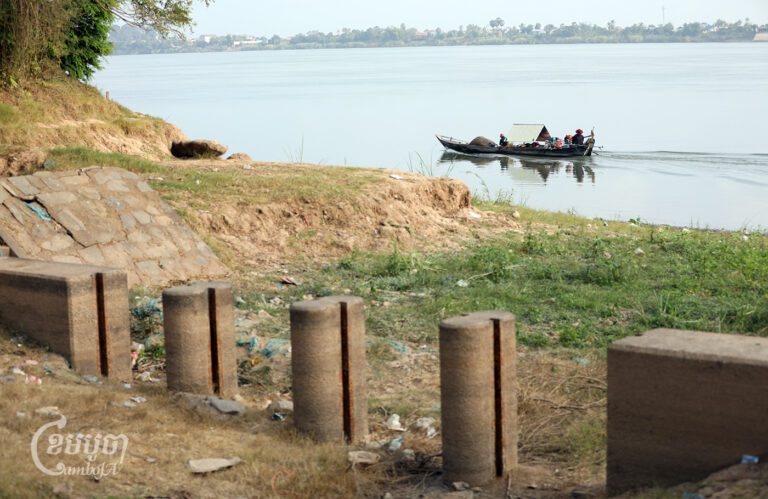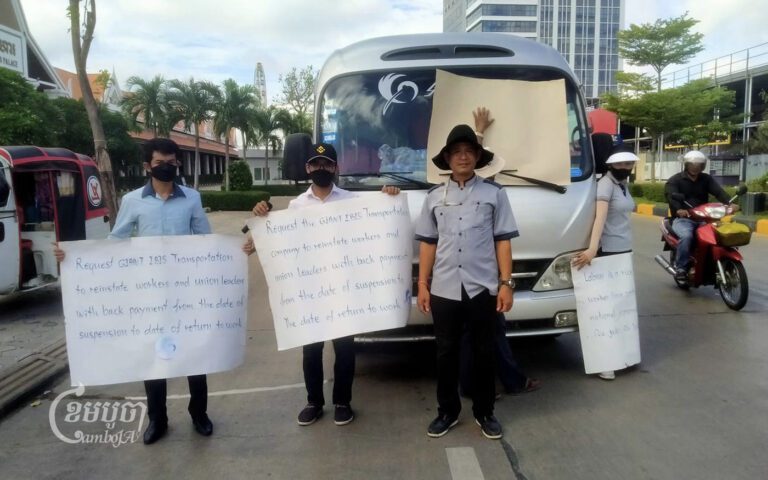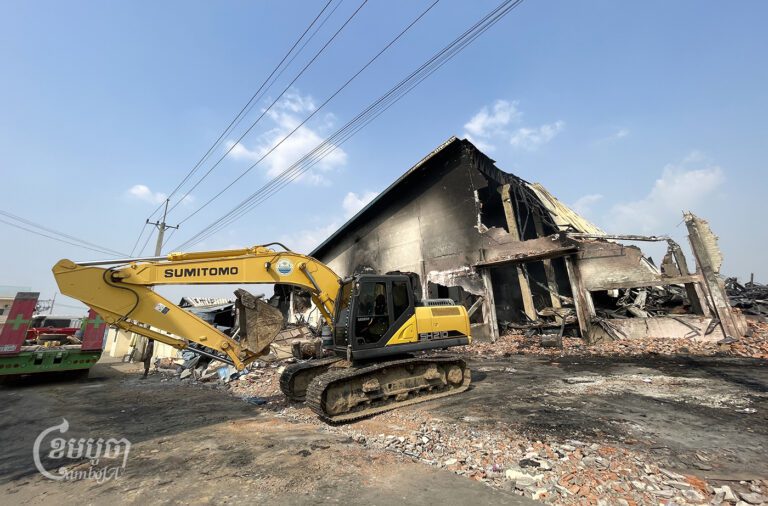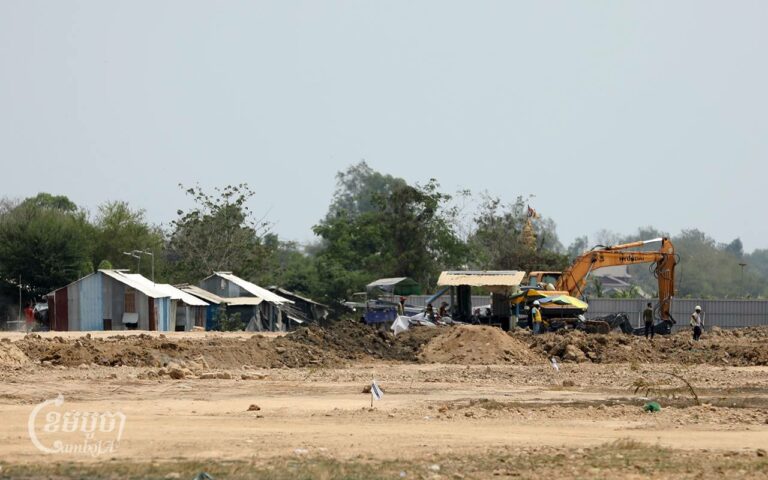Three years after thousands of garment workers were laid off without proper compensation under the country’s labor laws, nine former workers of Evergreen Apparel in Cambodia are still struggling for compensation.
During a press conference last Thursday, the workers said their demands have continuously been ignored.
Mek Sokly, 30, who worked at the factory for nearly 10 years, said that its owner had promised to provide workers with the compensation legally due to them when the factory closed in February 2019. However, this promise was not kept.
“The nine workers requested the intervention of the relevant institutions no less than 30 times, but still there are no results,” she said.
Sokly, who is from Kampot province, said also that the Garment Manufacture Association of Cambodia (GMAC) had acted as the company’s representative in all their exchanges. The workers have pleaded with the association to intervene, but to no avail.
“GMAC has not accepted our request and told us that the company was no longer a member of GMAC,” she said. “We have to fight because this is our problem and if we ignore the issue, the problem will continue for other workers where factories close.”
According to the Ministry of Commerce, Evergreen Apparel (Cambodia) Co. Ltd was registered at Chongthnal Khang Kaeut industrial park in Sen Sok district, Teuk Thla commune, in 2014. Based on Cambodia’s labor laws, Sokly claims she should rightly receive about $3,000 in compensation.
Seng Rottana, another worker from Kampong Cham province who worked at Evergreen for six years, found a new job at another garment factory in 2020. However, she is still fighting for the seniority payment owed to her by her previous employer.
“We continue even though hope is far. We are not quiet. We hope that justice will come to us based on the law one day as long as we keep demanding,” she said.
She said the relevant ministries don’t have mechanisms in place to force the factory owner to comply with the law. “The ministry told us that they can only facilitate and that they have no right to force the company,” she said. “We also call on international brands to urge the factory owner to address the issue.”
According to the workers, the factory owner had forced them to accept a voluntary termination of their employment contract before the factory shut down, as there was not enough work for them. They said their employer offered each of them between $80 and $100 a year in seniority payments, which most accepted.
According to the workers, 131 of them had rejected the proposal and demanded that the company compensate them fully under Cambodia’s labor laws. However, 122 of the 131 workers agreed to accept the compensation offered by the company (less than what they should receive under the law), while nine continued to reject their offer and are fighting for what they claim is fully owed to them.
Currently, the nine workers receive legal and technical support from the Worker’s Information Center to further their advocacy.
Kaing Monika, deputy secretary of GMAC, and Heng Sour, a labor ministry’s spokesman, could not be reached for comment.
A report by the Business and Human Rights Resource Center last year shows that thousands of Cambodian garment workers, who produce clothes for some of the world’s biggest brands, have yet to be paid wages owed to them since the factories closed during the pandemic.
The report highlights four case studies in Cambodia affecting more than 4,000 workers – at Violet Apparel, Hong Sen Textile, Sepia Garment, and Hung Wah, all of which closed down during the pandemic. In these cases, the workers were only partially compensated.

Ath Thorn, president of the Cambodian Labor Confederation, one of the country’s biggest unions, said that there are thousands of unsolved or partially addressed cases related to factory closures.
“The way the companies do it is to pay a small amount of compensation to end the problem, but for the workers, they want to be compensated according to the labor law,” he said. “Based on the law, workers still have an obligation to demand compensation from employers.”
He also pointed to the factory closures in Phnom Penh, in Kampong Cham and Takeo provinces, a few years ago, where more than one thousand workers remain uncompensated, as examples.
Thorn said that these cases are left buried most of the time when the Ministry of Labor and the Arbitration Council are unable to resolve these disputes.
“Generally, factory owners use bankruptcy as an excuse and open new factories by using new names to avoid responsibility,” he said. “Sometimes the relevant officials worked as the company’s advisor to help the company avoid their responsibility, so it is difficult to deal with.”
According to a Ministry of Commerce report, Cambodia’s textile exports in 2021 continued to increase even during the pandemic. Garment and footwear exports increased by 8 percent and 25 percent respectively compared to 2020, while the export of travel goods increased by 55 percent.
In September last year, the government increased the 2022 minimum wage for workers in the garment and footwear industry by $2, bringing their monthly salary to $194.
The pandemic has also impacted the garment sector, due to the dialing back of favorable trade conditions – such as the expiration of Cambodia’s access to the US’s Generalized System of Preferences, and the withdrawal of preferential access for approximately 20% of Cambodia’s exports to the EU market under the Everything but Arms agreement.


